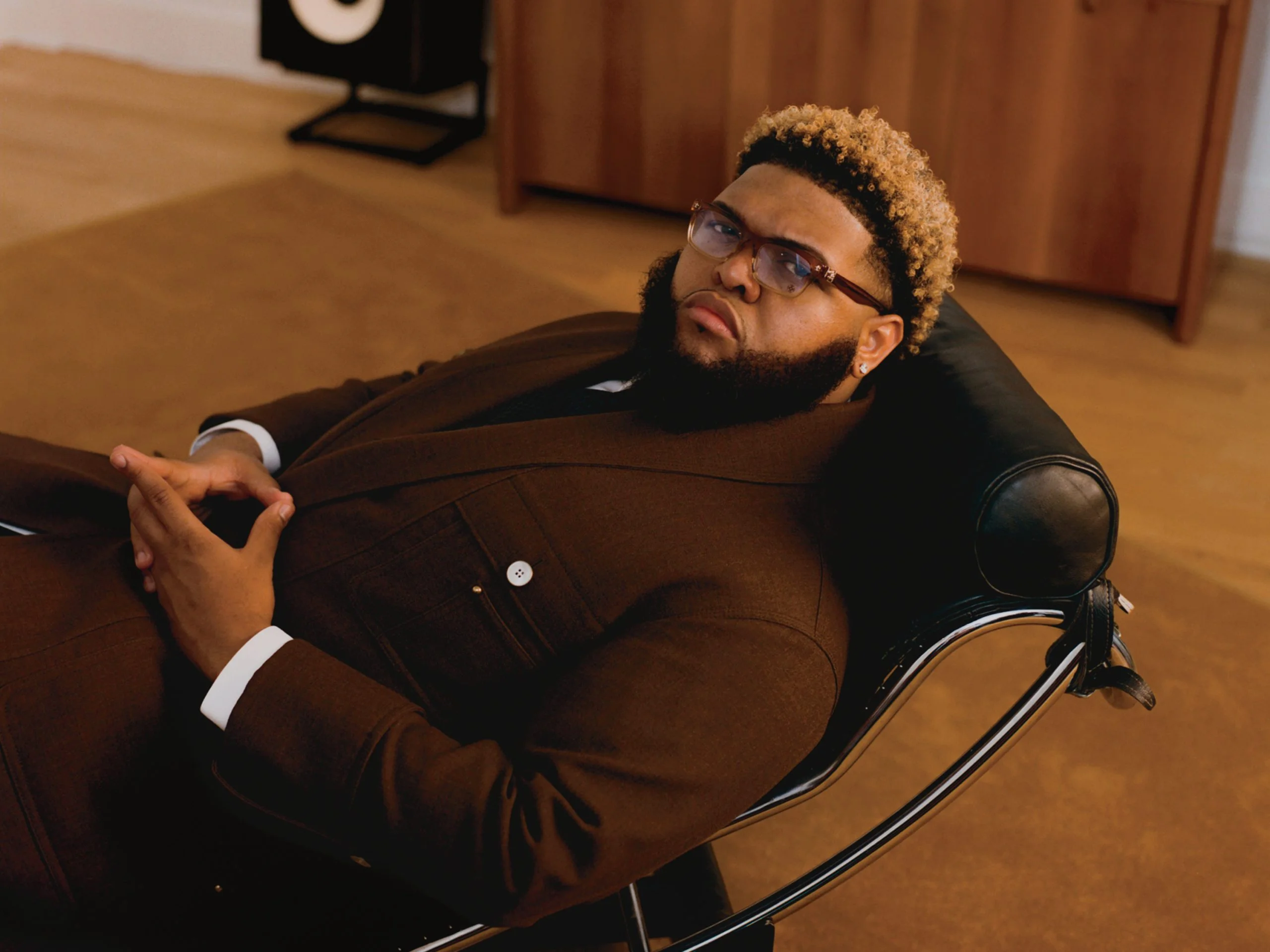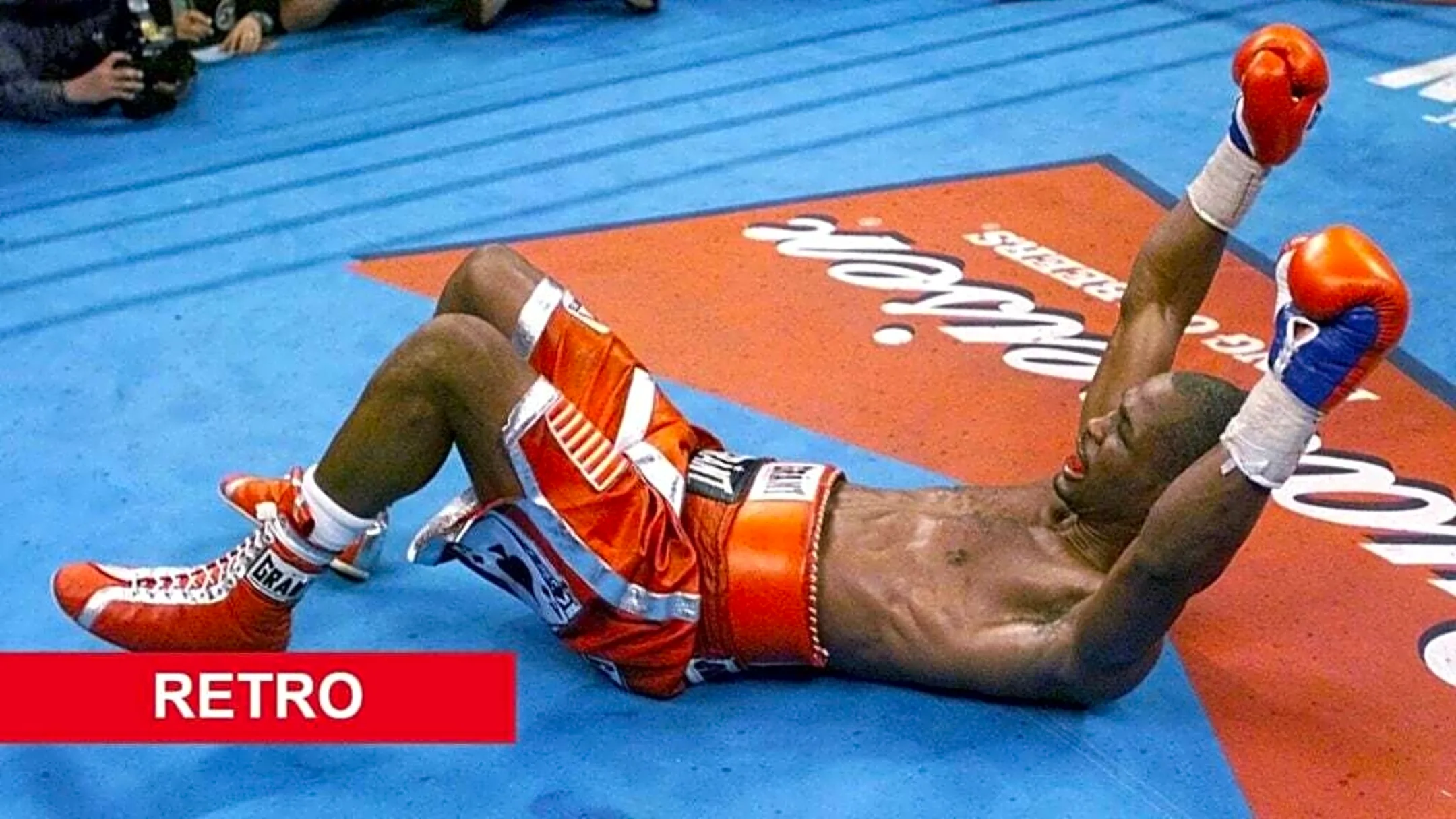
When I hear sbout someone’s backstory, I can usually pinpoint what the twist in their origin story might be—the moment in time when someone who may have started out good takes a turn toward darkness. It could be an incident or even an internal reflection that puts the person on a journey toward mayhem and, in some cases, destruction. In movies, we saw this with Killmonger in Black Panther and with Harvey Dent in The Dark Knight. Is real life ever that dramatic? Perhaps not, but one can still see clear representations of how such situations can play out. Then there are those who confront similarly harsh experiences, yet manage to stay on the path of light—and even draw lessons from their hardships to make future audiences laugh.
For comedian and Internet personality Drew Desbordes, aka Druski, I imagine his turn toward darkness could have begun with his high school teacher’s words. Sitting in class next to a star athlete destined for Division I football, the future comedy mogul listened as his teacher publicly humiliated him in front of his peers. “Don’t sit next to Drew,” she announced. “He’s not going to the same places you’re going in life. You need to be sitting over here.”
For many young Black men, those words could have been a verdict. They could have delivered a self-esteem hit that caused irreparable damage to an impressionable teen. Druski was still figuring how to get around Atlanta, let alone how to make his way through the world (one could write a whole separate piece on how educators can better support creatives pursuing nontraditional careers, but that’s a story for another day).
Now, over a decade later, Druski will be headlining his own global comedy tour; it kicks off at London’s OVO Arena Wembley and features stops at arenas across America. I don’t know where that young football player from Druski’s high school is, but he actually could have learned a thing or two by sitting next to Druski—because that teacher’s prediction couldn’t have been more wrong.
One thing worth noting is that meeting Druski is the farthest you’d actually come from finding a villain. When we spoke, he was kind, charismatic and one of the most humble celebrities I’ve met in a long time—especially given the tremendous amount of success he’s garnered in a seemingly short amount of time. Druski isn’t just next, he’s right now. But that’s the thing: He hasn’t caught up with all of it quite yet.
“I’m not going to lie, I’d be mind-blown,” Druski says, reflecting on what his teenage self would think of his current success. Back then, he was contemplating dropping out of high school—frustrated by an educational system that seemed to reject him for his natural comedic gifts. “I was going through a crisis,” he admits. “I really was. Everything I did, it was wrong in the eyes of the school.” But sticking it out ended up being beneficial, because those classmates who laughed at his antics became his first audience. Now with 27 million followers across social platforms, he’s something many entertainment executives are fighting to find: a talent who can build loyal audiences with authenticity and integrity. But this man had a plan, even when nobody else could see it.
“I knew I had a purpose,” Druski says. “Comedy had been on my mind for a long time, and I just kept kind of ignoring it, in a way. For me at the time, it had nothing to do with any business behind it. It was just for the love of comedy, and just doing it because I felt like it was my purpose.”
Season 1 of his self-produced YouTube series “Coulda Been House” pulled 58 million views across eight episodes. Season 2, featuring appearances from Lil Baby, Rick Ross and Kevin Hart, continued this momentum. His dating show, “Coulda Been Love,” hit 80 million total views across seven episodes. That’s an average of 11.4 million views per episode—which, in today’s era of short attention spans and moving on to the next “big” thing, seems astronomical. And the best part about it? Every single one of those views came after Hollywood told him no.
“We tried to get Netflix, we tried to get Amazon, we tried to get Hulu,” Druski says. “We tried to get a lot of companies to believe in the short-form shows. Everything was a no, back to back to back to back to back.”
Most people would have taken that as a sign to pivot—or even to compromise their initial vision, to fit what industry executives said they wanted to see. But Druski saw it differently. “I started saying, ‘All right. If I believe in myself this much, and I’ve made it this far believing in myself, what if I take the money I’m getting from some of these companies that are paying me and start to make my own productions?’”
And that’s exactly what he did. If he couldn’t find a way, he was going to make one. Ultimately, he spent what totaled millions of his own dollars on 4LIFERS Entertainment. While other newly wealthy entertainers were buying chains and cars, Druski was building a production company. “My first big purchase was reinvesting in myself, for sure,” he says.
His lifestyle reflects this philosophy in ways that would probably confuse a lot of people in his tax bracket, especially after they’ve touched that first big check. “I wear [bleeping] Birkenstocks and Patagonia, or camouflage shirts and baseball jerseys,” he says with a laugh when I ask what he did when he came into his first bit of money, after seeing some success. “I don’t even have a watch right now. I need to actually go get a watch.”
Only a person who has been at the bottom could understand this mentality, and the kind of hustle and grind that kept him going—as we’ve established that he didn’t learn it in school or in a textbook. He was determined to “make it,” and the only way he knew of to do so was to study both the wins and the spectacular losses of the entertainment business. “I tend to watch a lot of real-life documentaries,” he says. “I would study the failures and the good things about the people I looked up to, even if they might have been somebody who was once famous but fell off.”
Talk about a smart move; the entertainment graveyard is full of people who made the wrong choices with their money and their brands. Druski figured if he was going to avoid those mistakes, he needed to understand exactly how those same people crashed and burned.
One of the biggest and perhaps hardest lessons he had to master? Learning when to say no, even when the money was tempting—because boy did some of those offers sound good. “I always look to make sure it is something that’s on-brand for everything that I’m doing,” he explains. “I’m not going to work with a great company and then go work with a bullsh*t company, just because the money’s crazy. Trust me, we’ve been offered a lot of money for some wild deals.”
The temptation is real: When you’re looking at life-changing money, it’s hard to think about long-term brand damage. But Druski has seen what happens to creators who chase every check. “It’s good in the moment for the people that do it,” he reflects, “but in the long run, you just see the downfall of it over time. Years later, you’re like, ‘Damn, what happened to the people that once believed in me? Where did they go?’”
Enter Kevin Hart, who became both mentor and collaborator after recognizing something in Druski that maybe even Druski didn’t, at the time, fully see. Hart’s influence on his business approach has been huge, particularly around the importance of relationships over money grabs.
“The main piece of advice that he gave me and Kai [Twitch streamer Kai Cenat] is to just make sure that we’re doing it right,” Druski says. “You’re going to go through no’s, but just find a yes out of the no’s. He is relentless.” Hart’s emphasis on patience and relationship-building is something Druski took to heart: “It’s not just about money, money, money. It’s more about relationships. You can make a room full of people laugh, but do you have the same relationships with some of the people that can put you in a great position?”
I’ll be the first to admit, his joint effort with Hart and Cenat is the type of content that I (and the Internet) didn’t know we all needed, especially during these crazy times. And that undeniable material has produced viral content and now a feature film, with all three contributors maintaining their individual brands while creating something bigger together. “Everybody pulls their own weight in the trio that we have,” says Druski. “You don’t see too many people that are able to work together well and naturally just be funny together.”
And that is just one piece of Druski’s larger pie. His real power moves come in the form of transforming his brand deals into something bigger. Instead of just taking checks from major companies, 4LIFERS Entertainment partners with them as a legitimate production house. “When we did the Google commercial, 4LIFERS collabed with Google on that production,” Druski explains. “Or when we do any of my Nike commercial stuff, we collab with them, with my production company. Now we’ve gotten to a point where it is a little bit more respected than it was, when I just had to believe in myself.”
His content philosophy is simple but effective: Never repeat yourself; always evolve. “I don’t try to do anything twice, and I try not to get my fan base bored of anything that I do,” he says. Each skit needs to feel fresh; and his characters work because they’re pulled from real observations. People watch and think, I know exactly that type of person.
Staying grounded when your life changes this dramatically requires intentional choices. Druski was given opportunities to relocate to Los Angeles; he tried it for six months and hightailed it back to Atlanta. “I didn’t feel down to earth,” he says, “and if I don’t feel down to earth, I can’t give the world the best of me, because the biggest thing about me is being relatable.”
That relatability is what separates him from other comedians. His characters work because people recognize them, and that’s probably because we’ve all met these people in real life—though I did tell Druski I can’t believe some of the people that he’s parodying in the skits actually go along with this. His maintaining that connection to regular folks is probably why his international fan base has grown so quickly.
Which brings us to what might be his most ambitious project yet: the Coulda Fest Tour, launching September 13 at OVO Arena Wembley—the day after his birthday, because why not make it personal? This arena tour is a major scale-up from his previous theater shows; it will feature a hybrid format that mixes comedy and music with guests including BigXthaPlug, Soulja Boy and Young M.A, plus special appearances from Snoop Dogg and Lil Yachty. “It’s a mixture of something that you really haven’t seen before, a 50/50 blend of music and comedy,” Druski states. The concept proved successful when the original Coulda Fest at Atlanta’s State Farm Arena sold out, featuring appearances from Kai Cenat, 21 Savage, GloRilla and Meek Mill.
It’s safe to say I’ll be there with bells and whistles on—and so should you. Because in an industry where creators usually sacrifice ownership for opportunity, Druski found another path: betting everything on his vision, and working until everyone else had no choice but to believe in it too. We believe. As it turns out, the business of being Druski is just the business of being authentically yourself—and smart enough to turn that authenticity into an empire.



